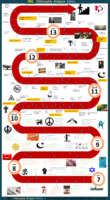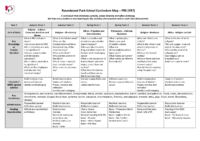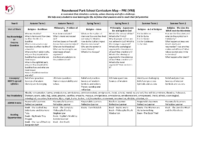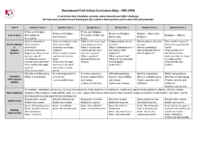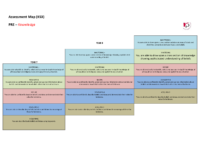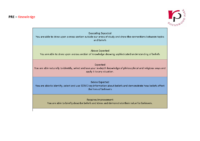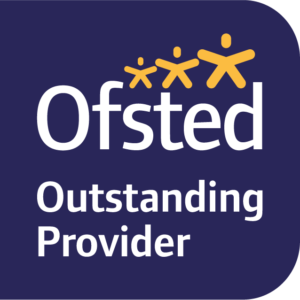Philosophy, Religion & Ethics
The PRE department is committed to developing students’ abilities to question, explore and gain knowledge of the core beliefs and values of world religions, key philosophical questions, and ethical topics.
We aim to develop their evaluative skills and establish informed opinions on world views, gaining informed knowledge relevant to the world they live in. To question, be curious and debate issues and beliefs that surround them throughout their lives.
Key Stage 3 (Years 7, 8 & 9)
In Key Stage 3 students study philosophy, religion and ethics (PRE).
PRE – understanding world views through questioning, curiosity and evaluation.
Our curriculum intends…
- To promote a lifelong love of learning through ASPIRE
- To ensure students question, explore and gain knowledge of the core beliefs values and diversity of world religions, key philosophical questions and ethical topics
- To develop students’ evaluative skills and establish informed opinions on world views, gaining informed knowledge relevant to the world they live in so they can flourish and reach their full potential
- To encourage students to question, be curious and debate issues and beliefs that surround them throughout their lives
- For students to develop “the self” and be respectful to others who are different to them in beliefs, views and practice
- To give students the tools to be informed about the world around them and be good citizens
By the end of KS3 students will know the historical context and core beliefs of the 6 major world religions so they have the factual knowledge needed to confront inaccuracies and misconceptions in an ever media driven world, and have the knowledge needed to live in a multi religious society. Ultimate philosophical questions and ethics dilemma gives students a chance to question and form opinions on moral and social matters that often impact our world. They will leave having the confidence and religious literacy to evaluate and articulate those view with others and embody the character of a Roundwood Park Leaver.
Year 7 students study:- Judaism; understanding a covenant through Abraham and Moses, Christianity; what are their core beliefs? Prejudice and Discrimination, Ultimate Questions, Hinduism; deities and worship, and Religion & Art.
Year 8 students study:- Buddhism; how did it begin and what are their core beliefs? The Problem of Evil, Argument For and Against the Existence of God, Islam; how did it begin and what are their core beliefs? Sacred Spaces and The Lion the Witch and the Wardrobe.
Year 9 students study :- Extremism, Social Justice, Children and War, Modern Slavery, the Ethics of War, Euthanasia, Sikhism; how did it begin and what are their core beliefs? And Alternative Religions.
General Ethics in Year 10
As well as the GCSE option of Religious Studies all year 10 students follow an Ethics course. This is a non examined subject that allows students to develop their understanding of important ethics issues and improve their critical thinking skills. In this course they will cover :- crime and punishment, matters of life and death and relationships in the 21C.
Key Stage 4 GCSE (Years 10 & 11)
We study the Edexcel syllabus. The syllabus includes the study of two major world religions examining their beliefs, philosophy and practices.
Islam –Religion, peace and conflict = core beliefs, crime and punishment, living the Muslim life and peace and conflict
Christianity – Religion and Ethics = core beliefs, marriage and the family, living the Christian life and matters of life and death
Key Stage 5 A Level (Years 12 & 13)
At A Level students study the OCR philosophy and ethics religious studies exam board. Through the course students will analyse key ethical, philosophical and theological theories and scholars and develop their critical thinking skills. This A Level challenges students to explore the big questions in life. Does God exist? Why is there evil and suffering? What happens after death? What is a conscience? How do we make moral choices? Who is Jesus? What is human nature? The students will enjoy the challenge of investigating scholars’ work and theories and finding their own confidence to voice their opinions and debate.
Trips and Visits
As part of the PRE course we feel it is valuable for pupils to both learn and experience different aspects of religion therefore we have number of trips and speaking visitors.
Years 7, 8 & 9 have the opportunity to work with ‘STEP’, this is a Christian organisation that runs engaging lessons linked to our curriculum. They allow students to understand and question a faith that might be different to their own in an informal lesson setting.
Years 10 & 11 have the chance to debate and discuss the beliefs and practices of Christians through the visiting group ‘STEP’. These visits are tailored to the topics we study throughout the GCSE course.
Years 12 & 13 students are encouraged to attend conferences usually held in London and have debate and discussion groups with the ‘STEP’ team on topics relevant to their course.
ROME – GCSE and A Level students are invited to a trip to Rome. Here we explore the world from which the Christian faith grew, develop a deeper understanding of the origins and history of Christianity, gain an understanding of the power and influence of religion, consider the different religious beliefs that existed in Roman times, explore the theme of persecution of people due to their religious beliefs, and see an abundance of religious art and architecture.


